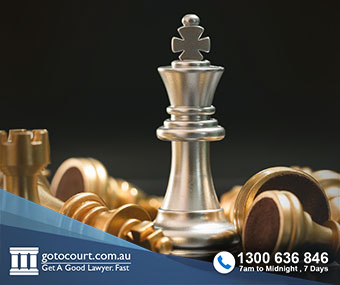Call our lawyers
now
or,
have our lawyers
call you
12 Ways To Safeguard Your Interests After Separating
Updated on Jan 27, 2023 • 6 min read • 434 views • Copy Link
12 Ways To Safeguard Your Interests After Separating
When a relationship breaks down, it can be hard to know what to do first. This page describes twelve practical steps that you can take to safeguard your interests after separation.
1. Agree on a date of separation
After separating, it is smart to keep records and not rely on memory alone. The first thing to write down after a relationship ends is the date of separation, and preferably agree on this date with your former partner. This date is significant because divorce applications and property settlement claims are calculated from the date of separation. This date is also relevant for Medicare and Centrelink claims.
2. Communicate in writing
Important discussions with a former partner should be in writing by email, text or letter (retaining a copy). This not only ensures a documentary record but can also help to reduce the chance of miscommunication between the parties. In acrimonious cases and those involving domestic violence, it is also important to have written records of specific conversations, incidents and threats.
3. Collect financial records
When one spouse is unaware of the assets and debts in the property pool, it can be harder to work out a fair property settlement. It is, therefore, important to gather as much financial documentation as possible. This includes loan and mortgage statements, payslips, tax returns and superannuation statements.
4. Separate finances
Separated partners should usually close joint bank accounts and put a hold on shared credit facilities or change them to require joint written consent. Each spouse should have a bank account in their own name. If the couple owns property in joint tenancy, they can make arrangements to hold the property as tenants in common instead. With a joint tenancy, if one spouse passes away, the whole property reverts to the surviving spouse regardless of whether they were separated.
5. Change passwords and security pins
Couples often know each other’s passwords and security pins for email, social media accounts, online banking, and cloud accounts. When a couple separates, it is sensible to change passwords and pins.
6. Agree on living arrangements during the separation
There are benefits to staying in the family home, especially for a party who wishes to retain the property in the asset division. Once a spouse leaves the home, it can be difficult to regain access. However, if there is physical risk in remaining, the person should put their personal safety first.
The person who stays in the home is entitled to exclusive possession until the property settlement is finalised. The person who leaves should therefore take everything they want to keep or need access to, particularly personal documents such as their birth certificate.
7. Continue to pay obligations
Separation does not automatically remove a responsibility to make payments on any debts or liabilities. If a couple was renting, both parties to a lease remain liable for paying the lease. However, if the person who left the home does not contribute, the person who remains must cover the whole rent or face eviction.
If a mortgage is in both names, each person remains liable to pay regardless of who lives in the property. However, most lenders will reduce or suspend mortgage payments in cases of financial hardship until a couple finalise a property settlement. In that case, the person who remains in possession of the home during that time typically pays a lesser contribution if it is all they can afford.
8. Arrange care of children after separating
The primary concern of parents after separation must be to make appropriate arrangements for the care of their children. Both parents need to be involved in making these arrangements. Care arrangements must be in the children’s best interests and suit their age and physical, mental and emotional needs. The best solution may not be spending equal time with each parent, but it should involve significant time with each parent unless there are genuine concerns for the child’s safety.
If parents cannot reach a private agreement, they must try family mediation before they can apply for a parenting order (there are exceptions in cases of domestic violence).
9. Agree on financial arrangements for the support of children
Parents have a legal responsibility to support their children financially. The assumption is that if the parents do have equal time with the children, there is no need for one parent to make child support payments to the other. When parenting time is not equal, the parent with fewer care responsibilities should make regular financial contributions to the primary caregiver. This amount can be calculated by making a list of the monthly expenditures for the care of the child and deciding on a fair contribution given the income of each person.
If the parties cannot agree, they can apply for a child support assessment. In that case, the Child Support Agency collects the payments. The minimum amount of statutory child support is calculated according to how much each parent earns, the number of children, their age, the parenting arrangements, and whether either party has other children. A child support assessment generally does not include an amount to pay for discretional costs, such as private school fees and extra-curricular activities.
10. Inform Centrelink
When appropriate, a separated couple should contact Centrelink and inform them of the change in relationship status. An individual’s Centrelink entitlements may change if they are living on their own with or without their children.
11. Update your will
One of the most important things that an individual should do after separating is make or update their will and power of attorney. Most married and de facto couples have wills that appoint their spouse as the main beneficiary and executor of their estate. Unfortunately, many couples fail to appreciate that their current will remains valid after separation until the court makes a divorce order.
It is also important to contact any insurers and superannuation funds to change the nominated beneficiary on these policies.
12. Get legal advice
Navigating the aftermath of a relationship can be stressful and uncertain. This process can be made easier by seeking legal advice from a family lawyer. This will allow you to be fully informed about your options and legal rights before making any binding decisions. Contact Go To Court Lawyers for experienced and specific advice on how to proceed after separating.

Affordable Lawyers
Our Go To Court Lawyers will assist you in all areas of law. We specialise in providing legal advice urgently – at the time when you need it most. If you need a lawyer right now, today, we can help you – no matter where you are in Australia.How It Works







1. You speak directly to a lawyer
When you call the Go To Court Legal Hotline, you will be connected directly to a lawyer, every time.


2. Get your legal situation assessed
We determine the best way forward in your legal matter, free of charge. If you want to go ahead and book a face-to-face appointment, we will connect you with a specialist in your local area.


3. We arrange everything as needed
If you want to go ahead and book a fact-to-face appointment, we will connect you with a specialist in your local area no matter where you are and even at very short notice.













